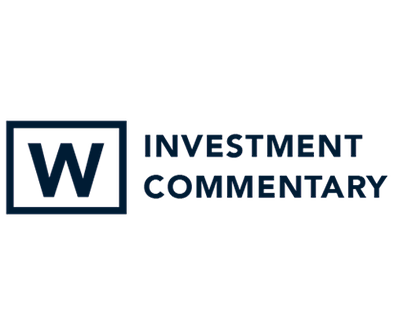Together, we are facing an unprecedented situation. The global pandemic is indiscriminately affecting all our families, our businesses, our communities and our investment portfolios. The coronavirus will be conquered, but no one knows how deep the downturn will go or how long it will last. As one author we admire stated, “The short to intermediate term outcomes are not merely unknown, but unknowable.” While this situation itself is unprecedented, it’s not the first time we have faced unimaginable events with equally unknowable outcomes.
Among the advisors in our office, we have advised clients through Black Monday in 1987, the terrorist attacks in 2001, and the global financial crisis (GFC) in 2008 and 2009. The first was technical, 9/11 was geopolitical and the GFC was systemic. This time it is obviously health related. We felt equally in the dark during those prior periods in trying to understand the human and economic impact. Lives were lost. Jobs were lost. Savings evaporated. Questions arose: What is the next shoe to drop? Will we be attacked again? Will corporate real estate suffer the same fate as residential housing? What happens if…? These questions are being asked today, which in this context is certainly to be expected.
The first casualty of a crisis is perspective. It is simply thrown out the window because of all the unknown factors involved. In the heat of the moment, perspective is impossible to achieve. This is why long-term planning is so important. The only way to get through times like these is to already have a well-designed financial plan in place: a plan that recognizes that the near-term future is unknowable yet leaves you able to sustain yourself if and when the unimaginable occurs; a plan that keeps you on course to achieve your lifetime goals; a plan that prevents you from making emotional decisions during times of stress. Sticking to your plan will give you the best chance of getting through this unprecedented period. It is something we have seen time and time again.
We realize how challenging it is to look past the next week, much less the next month or two. But there is something different about this pandemic relative to the other events we mentioned, we know exactly what’s causing the current crisis. There’s no mystery here. When the numbers begin to stabilize, which we have seen in some other countries, then we will begin to see the light at the end of the tunnel. And while the repercussions to the economy and job markets will not have stabilized at that moment, the news will cease to get worse. This is typically when markets turn. The market doesn’t need good news to start improving…it just needs the news to be better than expected.
It is important to point out that the usual obstacles to a recovery, such as lack of credit, are not in place. Governments and central bankers around the world are moving aggressively to provide a massive amount of stimulus and relief at a pace and size we have never seen before. Congress passed the $2.2 trillion CARES Act relief package last week, which injects billions into people’s pockets and strongly encourages companies not to lay off employees. Both central banks and governments have emphasized they will do more if needed. Governments of the largest economies in the world are injecting in excess of $5 trillion into the global economy at a financing cost of 0%. While the near-term economic damage is significant, it is very hard to be negative about the next several years. Given the magnitude of fiscal and economic stimulus already in place, or planned if the need arises, we expect a prompt and substantial recovery in the global economy once the coronavirus tide turns. As long-term investors, we can’t ignore the potential for significant gains when that occurs.
For some perspective (yes, we seem to have found some) the S&P 500 Index dropped by -20% during is the first quarter of 2020. There have been eight other quarterly market declines of -15% or more since WWII. In 7 out of 8 of those occurrences, the stock market had positive returns in the following quarter, with a median return of +6.3%. And in 7 out of 8 of those occurrences stocks were higher over the next 12 months by a median return of +22.8%. We cannot know which way the stock market’s next 25% move will go, but we do know with clarity, which way the next 100% move will be.
While we spend our days worrying about the impact of the coronavirus on our clients’ portfolios, we feel it is much more important to acknowledge the heroes on the front lines. We are in awe of the people and businesses that are rising to the challenge of defeating the virus and helping their fellow brothers and sisters. Their efforts have been incredible and have not gone unnoticed. Witnessing their courage and generosity makes us proud to live in America and it gives us optimism that better times are ahead. Don’t underestimate what humanity can accomplish when it collaborates to reach the goal of eradicating the virus. We currently know of 16 companies with thousands of employees that are racing to find a cure. There are many, many more that are in the trenches treating those most in need. We are thankful for all of them.


